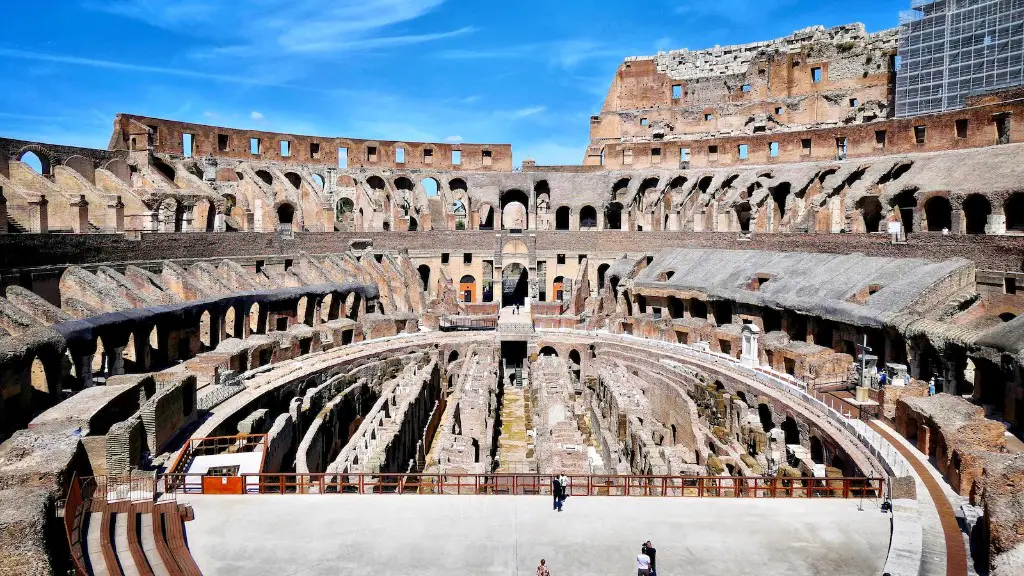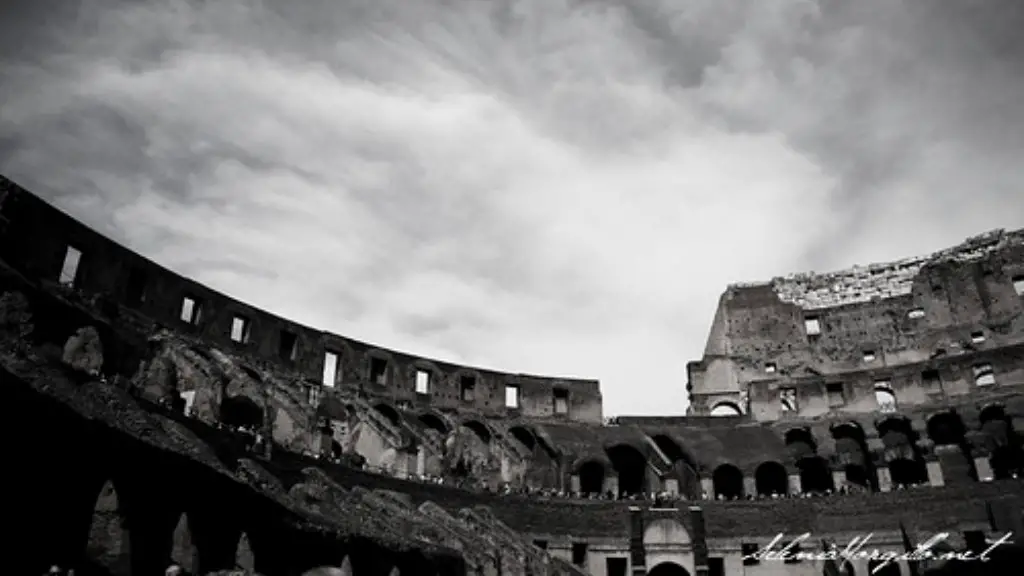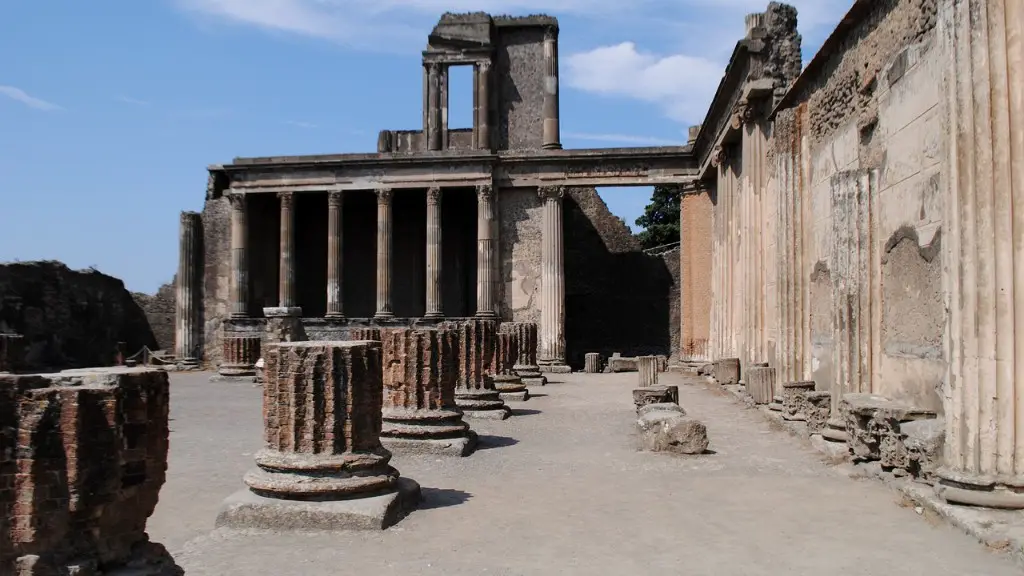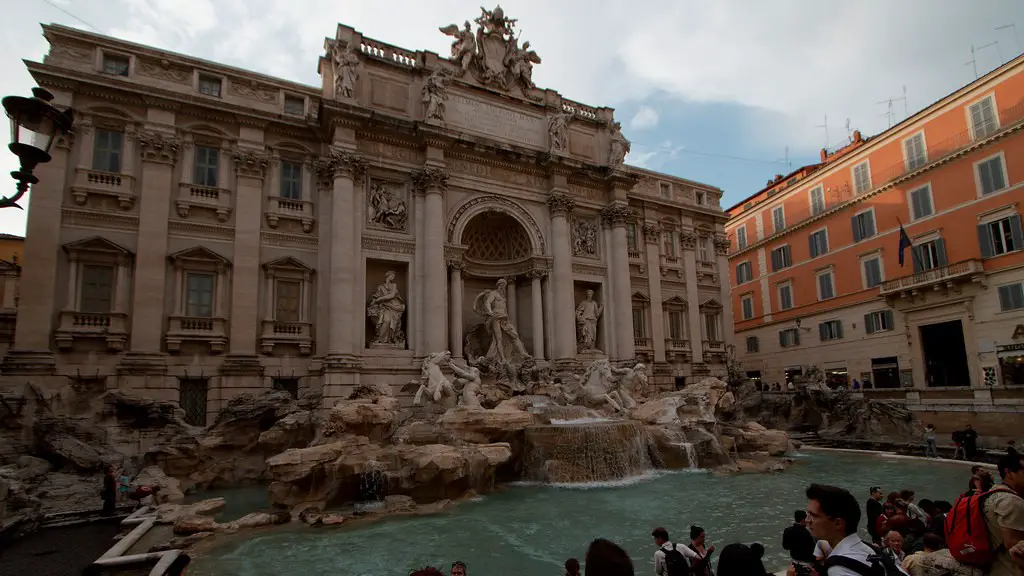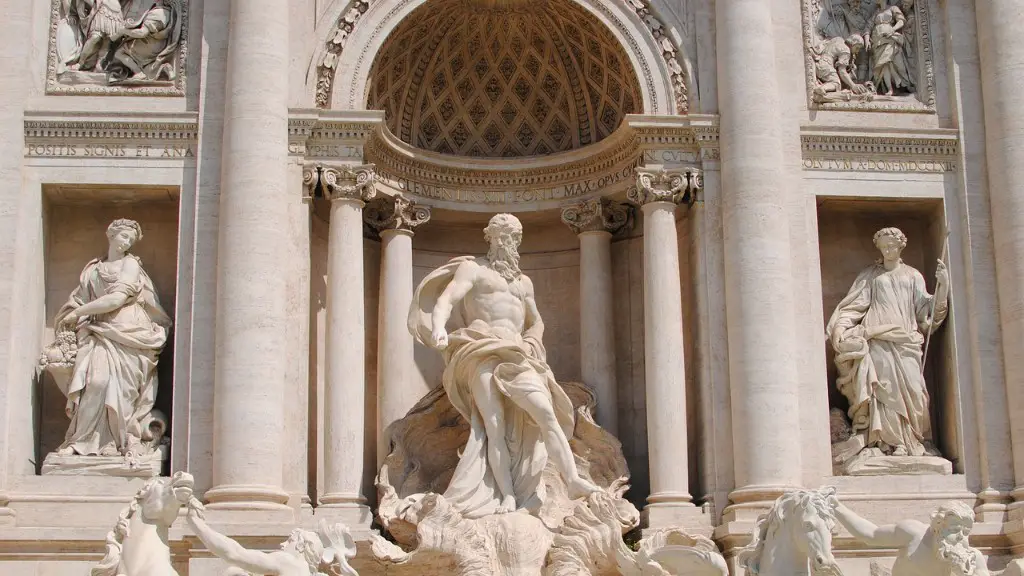Christianity is an ancient religion whose origins can be traced back to the first century A.D. and the teachings of Jesus of Nazareth. It is a monotheistic religion which has had an immense influence on society, culture and laws all over the world. Christianity is one of the major religions of the world and it has remained an important religious force in the western world since its inception. Christianity appealed to the ancient Romans for various reasons.
The Roman Empire was in the process of cultural, social and political transformation during the 1st century A.D. The Roman society was segregated and status-oriented and the lower classes had little representation in the government. Christianity presented an attractive alternative to the Roman people. It was profoundly different from traditional pagan religions and provided a powerful message of hope to the disenfranchised. Christianity also provided a sense of community, fellowship and equality to all who asked for it regardless of their status in the society.
Another reason why Christianity appealed to the ancient Romans was the focus on moral values. As the Greek and Then Roman pantheons gave way to Christianity, the Romans started to adopt teachings of compassion, altruism, charity, and hospitality.Moreover, Christian teachings, particularly those around the resurrection of Christ and the promise of everlasting life, provided a great source of comfort and hope in the face of death and suffering, giving them a sense of confidence. Additionally, the appeal of Christianity may also have been due to the fact that it was a ‘foreign’ religion and its priests came from abroad which they considered to be something ‘special’.
The rise of Christianity in the Roman Empire started in the 3rd century A.D. Initially, the spread of Christianity was met with much resistance and persecution due to its novel and diverse teachings. However, it gradually gained acceptance and it eventually became the official religion of the Roman Empire in the year 380 A.D. It was declared as the one true faith, thus providing the Romans with a unifying belief system.
In conclusion, Christianity appealed to the ancient Romans because it was radically different from any other religion they were exposed to and it brought them a sense of unity, fellowship, equality, and hope. It introduced the concept of moral values, charity, and compassion and gave them a promise of everlasting life, which was a great source of comfort. Lastly, it was a foreign religion which excited and intrigued the Romans, who eventually declared it as their one true faith.
Influence of Christianity on Roman Culture
The influence of Christianity on Roman culture is undeniable as it brought profound changes to the way the Roman people lived and thought by introducing moral values, charity and compassion. The teachings of Christianity then inspired Romana to end the practice of patricide, infanticide, and slavery, and to work towards the security of their people, a concept unheard of in the pagan religions. Christianity inspired the Romans to show hospitability and honesty, helping them to move away from their previous way of war-mongering.
The teaching of Christianity also had an impact on Roman literature, law and culture. Christian writers drew upon the writings of classical authors for inspiration and used them to comment on the spiritual world. Christian authors began writing poetry, hagiographies and histories, which provided a different perspective on religion and its relevance for Roman life. Similarly, the spread of Christianity had a profound effect on Roman law. The Romans adopted the Christian notion of judaism, which entailed distributive justice, thus promoting fairness in their legal system. This gave rise to civil law.
Christianity was also influential in Roman art and architecture as it provided them with a different set of symbols and visual cues such as paintings of the saints and religious figures that inspired worshipers to venerate the subject of the artwork. Similarly, religious symbols such as the cross began to appear in public spaces and churches, providing a reminder of the religion for everyone to see. Finally, Christian liturgy and music were used in Roman worship, significantly changing the way the people experienced and interacted with the divine.
The Rising Role of the Church
The increasing popularity of Christianity in the Roman Empire gave rise to the prominent role of the church in the intellectual, cultural and spiritual life of the people. The Church was the center of learning and it was essential in providing education to the masses, allowing them to experience the Christian faith first-hand. It was responsible for issuing decrees, laws and instructions to be followed and adhered to, thus strengthening its role in the governance of the empire.
The Church was also a source of social support and solidarity, helping to strengthen the bonds between families, individuals, and the entire Roman community. People turned to the Church for solace and help in times of trouble. The Church was also crucial in promoting tolerance of those who followed other religions and encouraged the peaceful coexistence of diverse culture and values. This enabled the Romans to build their identity based on the teachings of Christianity and their shared faith was what allowed them to create a shared cultural experience.
Furthermore, the holy days of the church provided the people with a chance to celebrate, enjoy and rest from their daily lives. Festivities and celebrations were organized to honor the martyrs, saints and all those who fought for the Christian faith. This helped to bolster the morale of the people and brought joy to all who participated. The Church was also essential in providing spiritual guidance and advice to the people and helping them understand Christian values and the intricacies of their faith.
Christian Missionaries in the Roman Empire
The rise of Christianity in the Roman Empire was inextricably linked to the arrival of Christian missionaries, who dedicated their lives to spreading and promoting the faith. These missionaries came from far and wide and their number was continually increasing. They had to contend with host of adversities such as harsh weather, lack of resources and limited transport, yet they remained determined in their mission. People from all walks of life were converted to Christianity, including the rich and the poor, the powerful and the disenfranchised. They were all welcomed with the same hospitality and non-judgmental attitude by the missionaries.
The missionaries established churches and schools and increasingly, more and more Roman citizens began to accept the Christian faith. The mission also provided a great opportunity for many to learn about the Bible and be educated in the Christian faith. This allowed them to comprehend the purpose and implications of the faith and to reflect on the way they lived their lives. The mission served as a crucial means of spreading the message of Christianity throughout the Roman Empire and gradually it became the dominant religion.
The missionaries also laid emphasis on compassion and charity and preached forgiveness and respect for all. This had an immense impact on the social life of the Romans as they no longer had to contend with the conflicts caused by the hierarchical nature of their society. The message preached by the missionaries allowed them to imagine a different world – one based on love, solidarity, and understanding.
The Martyrs of Christianity
The early followers of Christianity were persecuted by the Roman authorities for their faith, leading to the rise of the martyrs. The number of Christian martyrs increased rapidly in the 4th century A.D. as the Roman Empire began to crack down on its religious diversity. The horrendous acts of cruelty that were inflicted on these martyrs were particularly hard for the people to bear as they were an example of the power of faith and sacrifice. These martyrs were venerated by their fellow Christians for their exceptional courage, commitment and loyalty to their faith.
The stories of the martyrs encouraged people to be steadfast in their religious beliefs and to stay true to their faith. These stories also inspired many ordinary individuals to take a stand against the injustices of the state. The martyrs showed that even in the face of the most heinous acts, faith and resilience can prevail. In this sense, they were powerful symbols of hope and courage to the believers and their stories have been passed down through the ages.
The martyrs also demonstrated a deep sense of dedication to their faith, as they were willing to put their lives at stake for their beliefs. This showed people the importance of having a strong and unwavering faith in the midst of adversity. Lastly, their fervent devotion to God acted as a reminder to their fellow Christians that it is only through faith that one can persevere and ultimately be victorious.
Legacy of Christianity in the Roman Empire
The impact of Christianity in the Roman Empire has had a lasting legacy, even today. Christianity became the dominant faith and its teachings and values have become embedded in the way we think and act. The Church had a crucial role to play in the governance of the Empire but it also served as a source of comfort, hope and solidarity for the people of Rome. Similarly, Christianity inspired the rise of Roman culture, art and literature and its influence can be seen in many works from the period. Art, literature, music and architecture were all profoundly infused with Christian ideology.
Lastly, the martyrs of Christianity left an imprint on the Roman psyche, inspiring them to stay true to their faith regardless of the cost and reminding them that their faith can help them to overcome adversity. This legacy alongside the rise of the Church provided an intellectual, spiritual and cultural foundation for the Roman Empire. Christianity provided the Romans with a sense of belonging and a sense of purpose and hope, and it is no wonder that it appealed to them so greatly.
